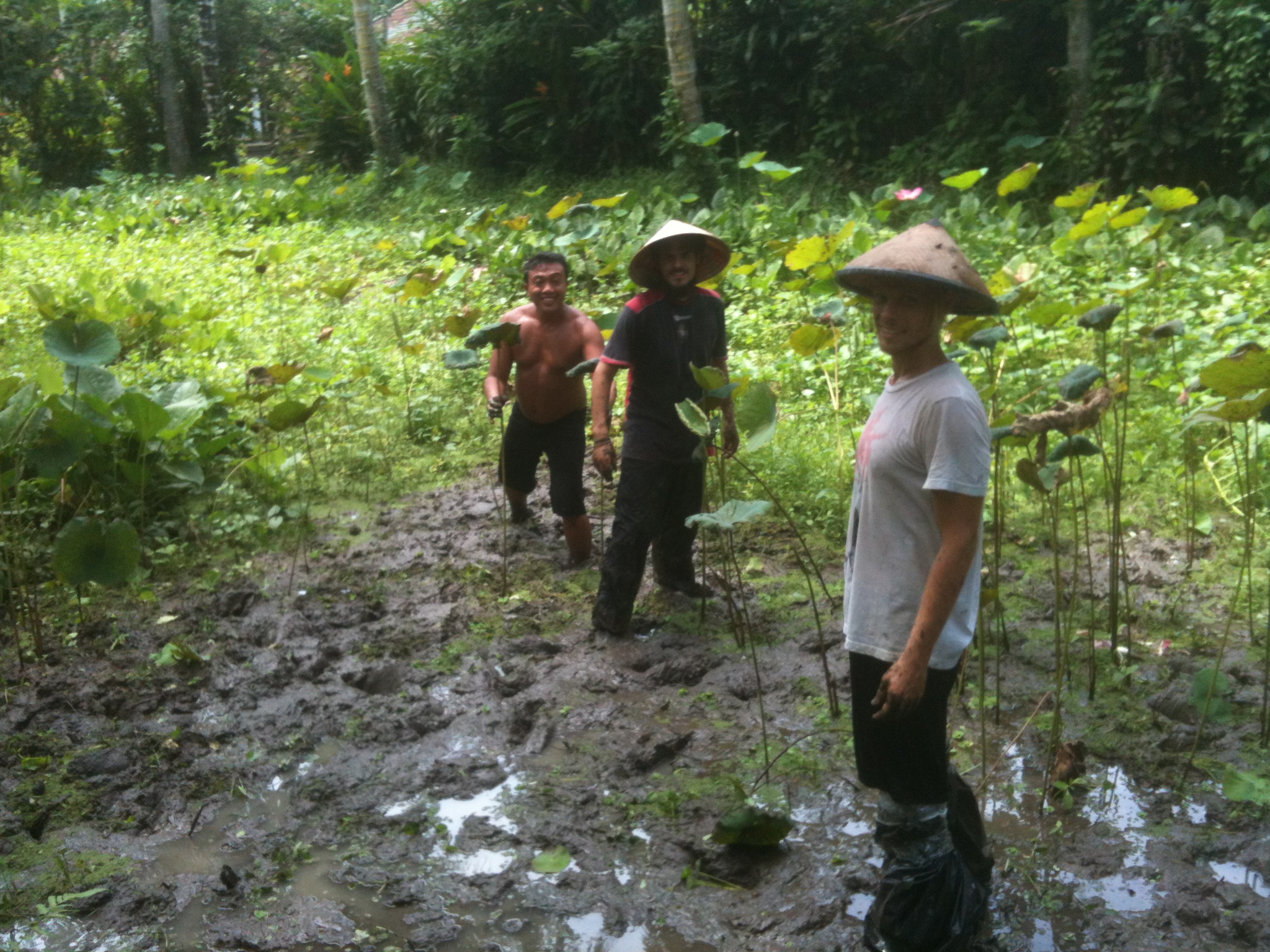Cleansing of the lotus pond
/Recently we had to clean the lotus pond at Jiwa Damai, since it was overgrowing with weeds.
Aitor and Justin, our two volunteers, as well as Wira, Jiwa Damai's coordinator, were getting ready to get into the mud of the lotus pond. To avoid possible skin irritations they covered their legs with large plastic bags, which are held at the top of the legs with tapes.
Preparation to work in the mud
However once they were in the pond, they found the mud quite agreeable and liked to walk and work in it, more like a mud bath.
Lotus pond
The growing weeds were pulled out and then the roots separated from the leaves which are used as mulch for our garden. In the ponds also grow large amounts of cancun, Balinese spinach which we use in our kitchen. Most probably we will eat Balinese spinach for the next three days. ;-)










